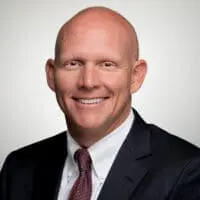Publication
Eligibility for Families First Coronavirus Response Act Leave Under Different School Reopening Models
By Marian Zapata-Rossa, Tiffanny Brosnan, Walker F. Crowson and Gina L. Miller
The Families First Coronavirus Response Act (FFCRA) provides covered employees with up to 10 days of emergency paid sick leave and up to 12 workweeks of expanded family and medical leave; 10 workweeks of which are paid if they cannot work or telework because they need to care for a child whose school is closed for COVID-19 related reasons.
With schools adopting different models for reopening this fall because of the coronavirus pandemic, the U.S. Department of Labor (DOL) has expanded its Questions and Answers on the FFCRA to explain when employees are eligible to take this leave. The new Questions and Answers provide the following guidance:
- Employees are eligible to take the leave if their child’s school is closed or is only offering remote or distance learning.
- Employees are also eligible to take the leave if their child’s school is opening on a hybrid basis with alternating days of in-person and remote learning. However, the leave may only be taken on the scheduled remote learning days when their child cannot attend in person.
- Employees are not eligible to take this leave if their child’s school is open and they have the option to return in person, but they chose to keep their child home, e.g., for fear their child may contract COVID-19.
Previous guidance from the DOL, which has not been changed or updated, explains other factors to consider when determining if an employee is eligible for leave based on school closures. This includes the following:
- The request for leave must be necessary to care for the child, and there must be no other suitable person available to do so.
- The leave may only be taken to care for the employee’s children who are under 18 years of age or who are over 18 years of age, if they are disabled and unable to care for themselves.
- Businesses with fewer than 50 employees may meet a small business exemption if providing employees with the childcare-related leave would jeopardize the business as a going concern.
Moreover, it is possible employees are not entitled to take FFCRA leave this fall because they have already exhausted their emergency paid sick leave for any one of the allowable reasons (e.g., quarantine, isolation, school closings, etc.). Employees, likewise, may have already exhausted their expanded family and medical leave when schools closed in the spring or when camps or other programs closed over the summer. Because expanded family and medical leave for school closings is included as part of, and not in addition to, the 12 workweeks of leave generally available to covered employees under the Family and Medical Leave Act (FMLA), employees may also not be able to take time off this fall, if they have already exhausted their FMLA leave for the year.
Employers should consider reviewing whether the expanded Questions and Answers impact leave entitlements for their employees or any other obligations owed under the FFCRA.
About Snell & Wilmer
Founded in 1938, Snell & Wilmer is a full-service business law firm with more than 500 attorneys practicing in 17 locations throughout the United States and in Mexico, including Los Angeles, Orange County, Palo Alto and San Diego, California; Phoenix and Tucson, Arizona; Denver, Colorado; Washington, D.C.; Boise, Idaho; Las Vegas and Reno, Nevada; Albuquerque, New Mexico; Portland, Oregon; Dallas, Texas; Salt Lake City, Utah; Seattle, Washington; and Los Cabos, Mexico. The firm represents clients ranging from large, publicly traded corporations to small businesses, individuals and entrepreneurs. For more information, visit swlaw.com.




